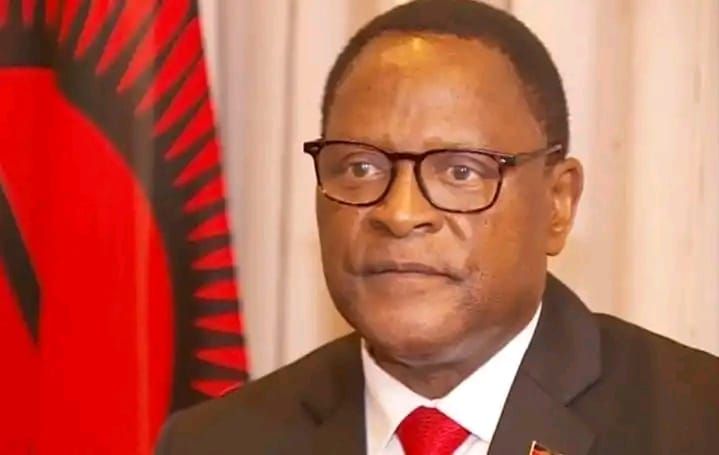By Burnett Munthali
According to Economic Intelligence Unit, Malawi’s economic outlook remains highly uncertain. In 2024-25 the economy will remain saddled with still high inflation – albeit declining and exchange-rate instability (following a large currency devaluation of 44% in late 2023). The expected impact of the El Nino weather event in early 2024 will weigh on agriculture but growth will accelerate driven by development finances (towards infrastructure) catalysed by the IMF’s extended credit facility (ECF) that was approved in late 2023. The government is pursuing debt restructuring to keep funding taps open. Endemic corruption, a rising rate of poverty and limited economic opportunities will provoke public protests in 2024. We nonetheless expect the president, Lazarus Chakwera, and his nine-party coalition to remain in office until the end of their term in 2025, although the opposition could win the elections in that year. Despite social instability, GDP growth will accelerate from 2024 as output in the mining sector improves. This article is an attempt to help Chakwera and his government address the challenges and issues affecting the economy of Malawi.
Public Expenditure
Public expenditure comprises the expenditures made by the entities of the public sector. These expenses are usually divided into current expenditure and capital expenditure. Public spending, such as taxes, are fiscal policy instruments that allow the State to intervene in the economy. Impacts of expenditure turns out that changes in any category of expenditure (Consumption + Investment + Government Expenditures + Exports-Imports) have a more than proportional impact on GDP. Or to say it differently, the change in GDP is a multiple of (say 3 times) the change in expenditure. Malawi needs to manufacture and export more in order for our economy to tick. Currently, the country imports more than it exports. If a country imports more than it exports, it runs a trade deficit. If it imports less than it exports, that creates a trade surplus. When a country has a trade deficit, it must borrow from other countries to pay for the extra imports. It’s like a household that’s just starting out.

According to studies, both long- and short-term economic growths are positively and significantly impacted by government spending on education. Long-term economic growth is negatively impacted by government expenditure on agriculture, while short-term effects are negatively impacted and considerable. Wasteful spending represents spending that does not return value and in some cases causes harm. Fruitless and wasteful expenditure in other words, expenditure that is made in vain should be avoided and reasonable care must be taken. Such expenditure includes interest, the payment of inflated prices, and the cost of litigation that can be avoided. The role of an expenditure control system is to ensure that the level and allocation of government expenditure reflect the will of the legislature as voted for in the budget. AIP fertilizer program is one such fruitless and wasteful expenditure that must be stopped and divert the financial resources in another direction which could be more beneficial to the nation.
Bonds
Using Debt To Pay Debt
First, Governments issue bonds to borrow money to avoid raising taxes. This helps pay expenditures and stimulate the economy through public spending. The government must pay interest to its creditors with debt issues. Theoretically, spending can generate additional tax income from businesses and taxpayers, which can be used to pay down debt. Issuing debt may provide a boost to economic growth but may not be effective in reducing long-term government debt directly.
Secondly, maintaining interest rates at low levels can help stimulate the economy, generate tax revenue, and, ultimately, reduce the national debt. Lower interest rates make it easier for individuals and businesses to borrow money for goods and services, which creates jobs and increases tax revenues. Low interest rates have been used as a strategy of the United States, the European Union (EU), the United Kingdom, and other nations during times of economic stress. Unfortunately interest rates in Malawi are exorbitantly very high thereby making the cheapest items ordered from outside expensive on the market.
Spending Cuts
Thirdly, the President should lead the government budgeting process. He should sign the Budget and Impoundment Control Act so that Parliament could have power over spending. Each year, Parliament Budget Office (PBO) must publish the long-term projections of the national budget and the future economy based on a current snapshot. Citizens should share their opinions about the need to balance the budget or cut government spending. These cuts must culminate in reductions in benefits to low-income families, veterans programs, and environmental protection programs.
Fourthly, governments can raise taxes to pay for expenditures and to pay down their debt. Taxes can include national, state, and in some cases, local income and business tax. Other tax examples include the alternative minimum tax, taxes on alcohol and tobacco products, corporate tax, estate tax, Insurance Contributions Act (FICA), and property taxes such as ground rates. Although tax hikes are common practice, most nations face sizable and growing debts. When cash flows increase but spending continues to rise, increased revenues have little impact on a nation’s overall debt level.
Bailout or Default
Finally, many nations in Africa have been the beneficiaries of debt forgiveness. In the late 1980s, Ghana’s debt burden was significantly reduced by debt forgiveness. To avoid default in 2010, Greece was given the equivalent of $146 billion in bailout funds by the International Monetary Fund and the European Union. Default can include bankruptcy and/or restructuring payments to creditors, which is a common and often successful strategy for debt reduction. Malawi Government must use various strategies to reduce its national debt. From issuing debt in the form of bonds to lowering interest rates, such actions may have short-lived success but always encounter debate.
In conclusion, austerity measures should be taken on board seriously and implemented to reduce government spending and shrink the budget deficit. They must include tax increases and government program cuts. Austerity should result in a decline in available social services and a reduced individual disposable income.
Finally, austerity measures are important and quick solutions to economic crises of countries. They help in managing the national budget effectively especially during a time of weak economic growth which Malawi is currently going through. The reforms, if well implemented in the public service, ensure unnecessary expenses are diagnosed and dropped at once.



